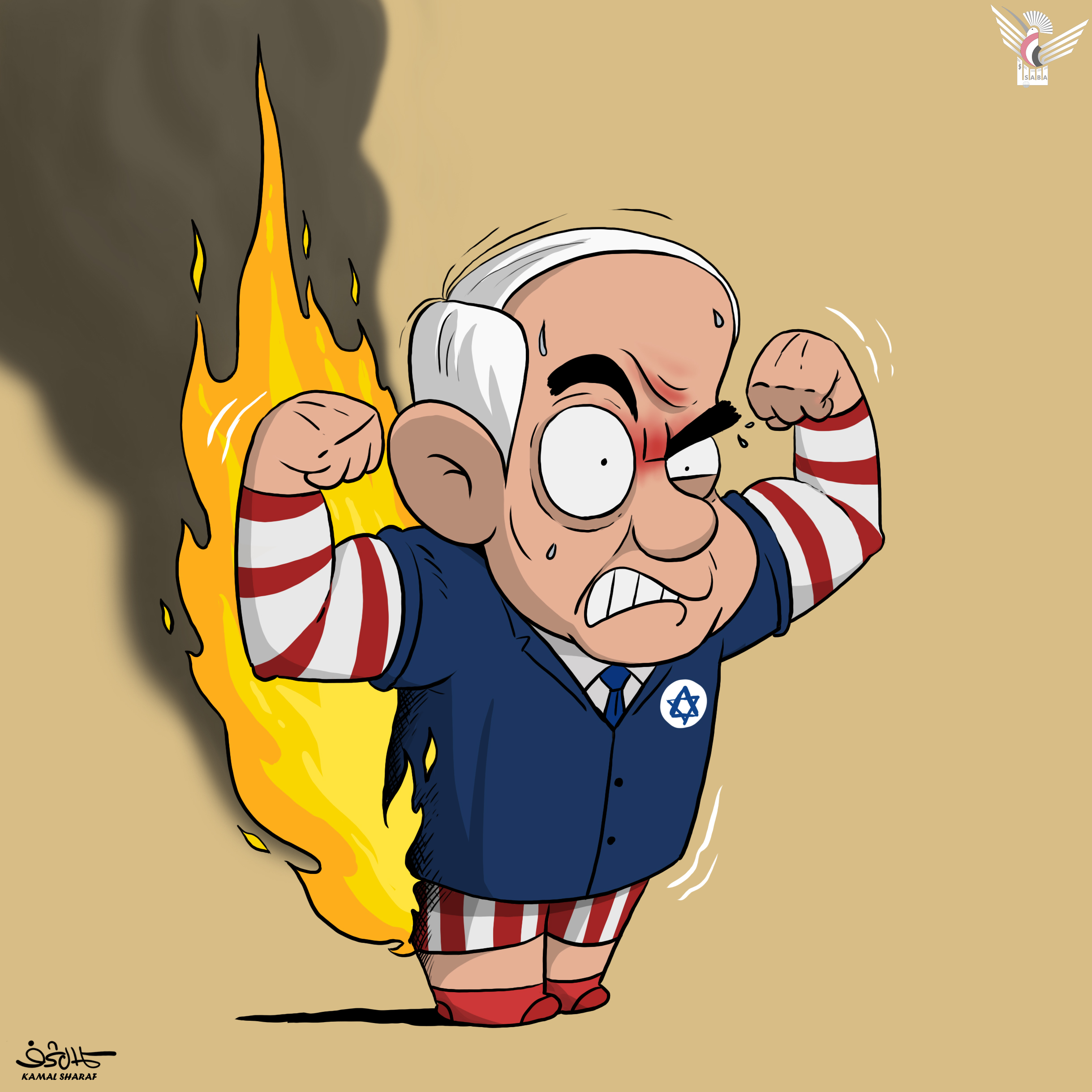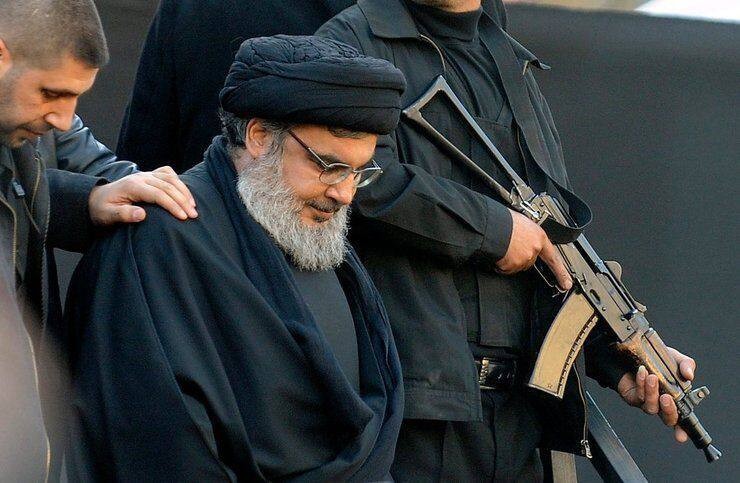Sana'a - Saba: After a long journey of struggle, during which he fought the usurping Zionist enemy, the first enemy of the nation, for more than three decades, the leader of the Resistance, the secretary general of Hezbollah, Sayyed Hassan Nasrallah, joined the ranks of the great martyrs, after he spent his life defending the causes of the nation, loyal to the Palestinian people in Gaza through his adherence to the Battle of Isnad since the second day of the Zionist extermination war.
With the passing of Sayyed Hassan Nasrallah, the Secretary-General of Hezbollah and a staunch supporter of Yemen, the Yemeni people join others in mourning a great leader and symbol of resistance. Since the onset of the US-Saudi-Emirati aggression on Yemen in March 2015, Nasrallah was one of the first and most prominent voices to stand in defense of the oppressed Yemeni people, offering unwavering support and sincere advocacy for their cause.
As Hezbollah announced his passing on Saturday, Nasrallah is remembered as a martyr and leader, revered for his bravery, wisdom, and deep belief in justice. For the people of Yemen and the free nations of the world, his death marks the loss of a figure embodying courage, dignity, and freedom.
In an official obituary statement today, Hezbollah mourned the passing of its Secretary-General, Sayyed Hassan Nasrallah, who joined his immortal martyr comrades after decades of leading the Islamic resistance. The statement highlighted Nasrallah’s 30-year legacy, during which he guided Hezbollah through pivotal victories, including the liberation of Lebanon in 2000, the divine victory in 2006, and numerous battles for honor and redemption.
Nasrallah's leadership extended beyond Lebanon, as he became a symbol of support for Palestine, Gaza, and the oppressed Palestinian people, culminating in his unwavering commitment to the resistance movement.
Yemen, Iran, Iraq, and Palestinian resistance factions have strongly condemned the assassination of Hezbollah Secretary-General Hassan Nasrallah by the Zionist enemy. In their statements, they expressed full confidence that Nasrallah's legacy and approach to resistance will continue despite his death. They also reaffirmed their unwavering solidarity, standing united with Hezbollah and the Islamic resistance in Lebanon during this critical time.
Following Hezbollah's confirmation of the assassination of its Secretary-General Hassan Nasrallah by the Zionist enemy, Hashem Safieddine has surfaced as a possible successor. Safieddine, currently the chairman of Hezbollah’s Executive Council, is closely related to Nasrallah and has been a key figure within the organization. Despite earlier reports, Safieddine was not among those assassinated, positioning him as a leading candidate to take over the leadership of Hezbollah in the wake of Nasrallah’s death.
Who is Hassan Nasrallah?
Sayyed Hassan Nasrallah became the Secretary-General of Hezbollah on February 16, 1992, following the assassination of his predecessor, Abbas Mousavi, by the Zionist enemy. Mousavi was killed when his motorcade was struck by a rocket, and Nasrallah became the third leader of the party.
Nasrallah received his religious education in various seminaries in Lebanon, Iraq, and Iran, which helped shape his ideological foundation. His involvement with Hezbollah led to his eventual leadership, under which the party experienced significant growth and transformation. He became a formidable figure in confronting Israel.
Nasrallah earned the title "Master of Resistance" for his crucial role in leading Hezbollah, particularly after the liberation of southern Lebanon in 2000, ending 22 years of Zionist occupation. He also played a pivotal role in the 2006 war, where Hezbollah successfully resisted Israeli forces, further solidifying his position as a key figure in the resistance movement against the Occupation
Upon Hassan Nasrallah’s martyrdom, many recalled his words spoken over two decades ago following the assassination of Hamas founder Sheikh Ahmed Yassin by Israeli forces. At that time, Nasrallah expressed unwavering solidarity with Hamas, declaring, "Consider us in Hezbollah—from its secretary general to its leaders, Mujahideen, elders, women, and children—as members of the Hamas movement, and know that, God willing, we will fulfill our promise of this commitment and affiliation."
Throughout his leadership, Nasrallah played a pivotal role in negotiating prisoner exchanges, securing the return of Lebanese and Arab prisoners, as well as the remains of resistance fighters held by Israel. His charismatic speeches and determined stance against Zionist forces bolstered his popularity across the Arab and Islamic worlds, especially during key events like the liberation of southern Lebanon in 2000 and the 2006 Lebanon War. For many years, he was widely recognized for his leadership in resistance movements and earned considerable respect for his role in shaping Hezbollah’s influence.
Hassan Nasrallah’s name resurfaced prominently during "Al-Aqsa Flood" operation, launched by Palestinian resistance forces on Israeli settlements surrounding Gaza at dawn on October 7th. This event triggered a prolonged and devastating conflict, with Israeli forces waging what many labeled a genocidal war on Gaza, resulting in the deaths of thousands of Palestinians.
In response, Nasrallah declared the opening of a front in southern Lebanon to bolster the Palestinian resistance. In the days leading up to his assassination, he remained steadfast in his commitment, emphasizing that he would not cease his support until the Gaza war ended, firmly rejecting any form of compromise.
Birth, Upbringing, and Education:
Hassan Abdulkarim Nasrallah was born on August 31, 1960, in Bazouria, a town near the southern Lebanese city of Tyre. He was the eldest of three brothers and five sisters, born to Abdulkarim Nasrallah and Nahdia Safieddin. Nasrallah married Fatima Yassin, and the couple had five children: Hadi, Zainab, Mohammed Jawad, Mohammed Mahdi, and Mohammed Ali.
In 1997, Nasrallah’s eldest son, Hadi, was killed by Israeli forces during confrontations in Rafie Mountain area in southern Lebanon. His body was held by Israel until 1998, when it was returned in an exchange involving the remains of 40 Lebanese prisoners and martyrs.
Nasrallah began his education at the private al-Kifah School in the Karantina neighborhood of Beirut, a poor and marginalized area. He later attended the Pedagogical Secondary School in Sin El Fil for his middle studies. In 1975, as Lebanon descended into civil war, his family returned to their hometown, where Nasrallah completed his secondary education.
At the age of 16, in 1976, he traveled to Najaf, Iraq, to enroll in the prestigious religious seminary there. It was in Najaf that he met Abbas Mousavi, the future secretary-general of Hezbollah, who became his mentor and played a key role in Nasrallah’s religious and political education.
Hassan Nasrallah: Life, Leadership, and Legacy
Sayyed Hassan Nasrallah's life is defined by his deep religious education, early political activism, and leadership of Hezbollah. He began his religious studies in Lebanon, Iraq, and Iran, returning to Lebanon in the late 1970s to join Imam-in-Waiting Seminary in Baalbek. His education continued in Qom, Iran, the second most important center for Shiite religious learning, after which he returned to Lebanon.
Political and Organizational Experience:
Nasrallah initially joined the Amal Movement during his secondary school years and became its organizational official in his hometown. By 1979, he was appointed the political official for Bekaa region and a member of Amal’s political bureau. However, after disagreements with Amal's leadership over how to respond to the Israeli invasion of Lebanon in 1982, Nasrallah, along with others, left the movement and joined the newly formed Hezbollah. His early role within Hezbollah included organizing resistance and forming military cells in Bekaa region.
He steadily rose through Hezbollah’s ranks, holding various leadership positions. In 1985, he moved to Beirut, became the city's official, and later assumed the role of the General Executive Officer. This placed him in charge of implementing decisions made by Hezbollah's Shura Council. His rapid ascent within the organization culminated in his election as the Secretary-General of Hezbollah in 1992, following the assassination of Abbas Mousavi by Israel. Despite being the youngest member of the Shura Council at the time, he was unanimously chosen for the role.
Military Leadership and Resistance:
Under Nasrallah’s leadership, Hezbollah executed several successful military operations against Israel, including the liberation of southern Lebanon in 2000 after 22 years of occupation. He played a pivotal role in a landmark prisoner exchange with Israel in 2004, freeing not only Lebanese prisoners but also hundreds of prisoners from other Arab nationalities, including Palestinians, Syrians, Libyans, and Moroccans.
Nasrallah’s leadership during the 2006 Lebanon War further bolstered his reputation. Despite heavy Israeli bombardments and widespread destruction, Hezbollah resisted effectively, and Israel ultimately withdrew without achieving its military objectives. Nasrallah’s popularity soared in the Arab and Islamic worlds as a symbol of resistance against Israel and Western influence in the Middle East.
Involvement in Gaza and Final Days:
Following the launch of the "Al-Aqsa Flood" operation by Palestinian factions on October 7, 2023, Hezbollah joined the battle by attacking Israel's positions in the Shebaa Farms. Nasrallah emphasized that Hezbollah's involvement was meant as solidarity with the Palestinian resistance, declaring that Hezbollah's front was "support and solidarity," while the primary battlefront remained in Gaza.
In his later speeches, Nasrallah vowed continued military engagement until Israeli attacks on Gaza ceased, warning that persistent Israeli strikes against civilians would provoke Hezbollah to expand its rocket attacks.
On September 27, 2024, the Israeli military launched intense airstrikes targeting Hezbollah's headquarters in the southern suburb of Beirut. The next day, Hezbollah confirmed Nasrallah’s martyrdom in the raid. Despite his assassination, Hezbollah vowed to continue resisting Israel and supporting Gaza, Palestine, and Lebanon’s defense.
Nasrallah leaves behind a legacy as one of the most prominent leaders of resistance against Israel, having shaped Hezbollah into a formidable military and political force in the region. His assassination marks the end of a significant era, but Hezbollah's leadership has pledged to carry forward his vision and struggle.

| more of (Reports) |




